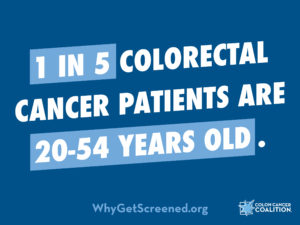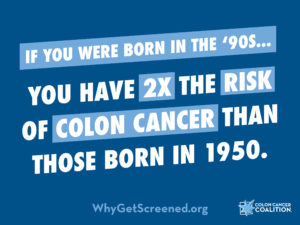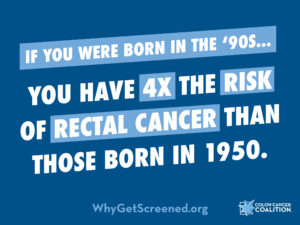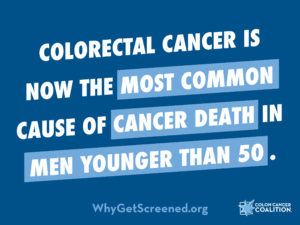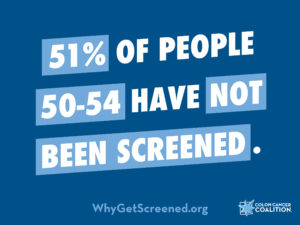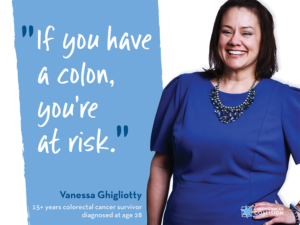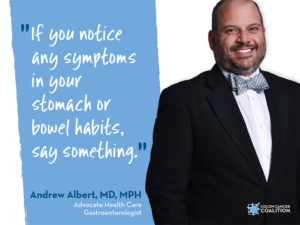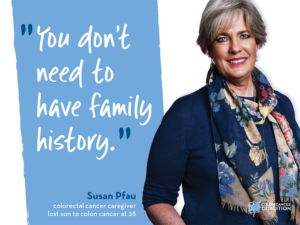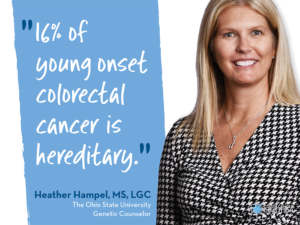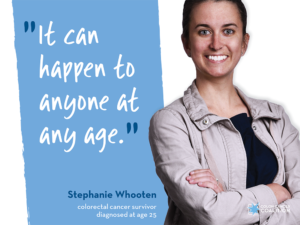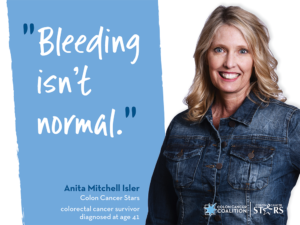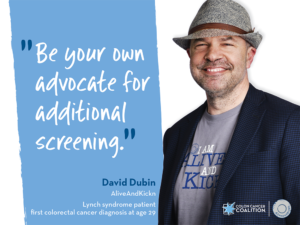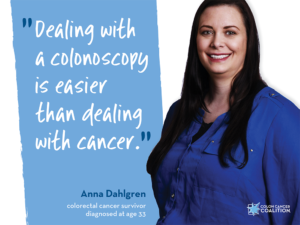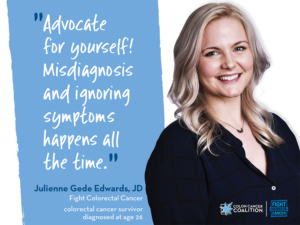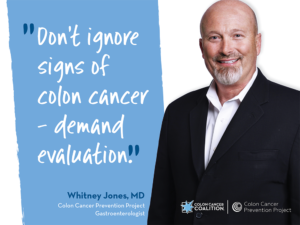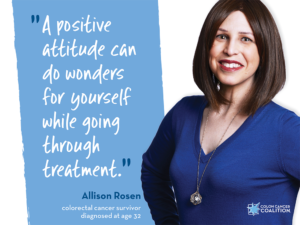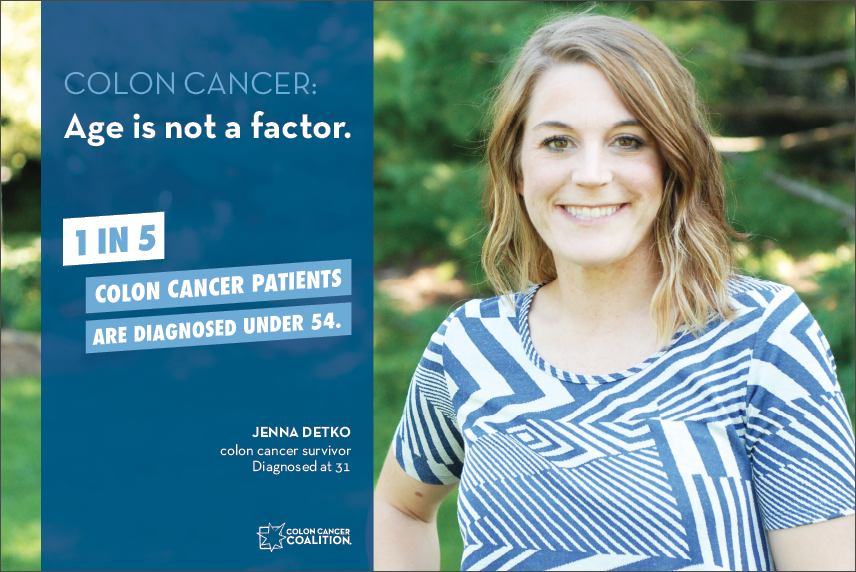
What can you do?
Be an advocate for your own health. Early stage colon cancer may show no signs or symptoms. Listen to your body and talk to your doctor if you know something is not right. Seek a second opinion if needed.
Know your family history. 25% of all colorectal patients have a family history of the disease and/or a genetic condition that makes some people more likely to develop polyps, colon cancer, and possibly other cancer.
Reduce your risk. There are steps you can take to minimize your risk for colon cancer. Maintain a healthy body weight, get regular physical activity, limit your intake of red and processed meats, and don’t smoke.
Colon Cancer Signs & Symptoms
![]() Change in Bathroom Habits
Change in Bathroom Habits
![]() Fatigue
Fatigue
![]() Anemia
Anemia
![]() Unexplained Weight Loss
Unexplained Weight Loss
![]() Persistent Cramps or Low Back Pain
Persistent Cramps or Low Back Pain
![]() Feeling Bloated
Feeling Bloated
INFORMATION & RESOURCES ABOUT YOUNG ADULT COLORECTAL CANCER
New York Times Early Onset Colorectal Cancer Series
All articles by Roni Caryn Rabin
- “Colon and Rectal Cancer on the Rise in Young People,” Feb. 28, 2017
- “What Young People Need to Know About Colon Cancer,” March 16, 2017
- “More Young People are Dying of Colon Cancer,” Aug. 22, 2017
Vee on the Street
Young Adult Guerrilla Awareness Effort
Young adult onset colorectal cancer study reports
- Colorectal Cancer Rates Have Risen Dramatically in Gen X and Millennials
- Colorectal Cancer Death Rates Rising in People Under 55
Downloads & Shareables
- Metastatic Colorectal Cancer, Spring 2018 (.pdf)
- Download Infographics (zip file)
- Download Testimonial Graphics (zip file)
- Marvin card (2017) (.pdf)
- Jenna card (2018) (.pdf)
- Order free educational materials to share
External resources for young colorectal cancer patients
- The Colon Club – On The Rise Magazine
- COLONTOWN (online social community)
- GRYT Health (app based social community)
- Imerman Angels (Peer to Peer support for patients and caregivers)
- Lacuna Loft
- Stupid Cancer
- WE Have Cancer Show (podcast)
- Financial resources and support (document)

